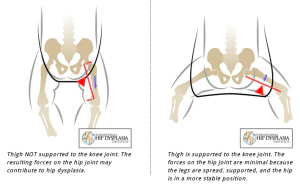Multilingualism, Dos & Don’ts

When living in a multi-cultural country like UAE, dilemmas start haunting parents regarding the choice of language they’re supposed to teach their children. Should they stick to their mother tongue? Add another language or maybe a third? However, sometimes multilingualism is not a choice, it is a necessity.
Studies have shown that learning an additional language does not cause confusions or language delay in children. This fact was proven for all children with or without language impairment.
However, it is the way we teach an additional language that makes it easier or harder for a child to grasp.
The dos and don’ts
The don’ts
1. Don’t mix 2,3 languages in the same sentence when communicating with your child: each language has its own grammatical rules and system.
2. Don’t personally teach your child a language that you’re not proficient in.
3. Don’t stop using your mother tongue/minority language at home. It will cause emotional and communication difficulties for the whole family. It might also be the reason behind feeling disconnected with one’s own culture.
The dos
A language reference must be established to make it easier for the child to learn the additional language (2nd or 3rd). The reference could represent:
A primary person who takes the responsibility of always using the same language with the child, e.g. Mom speaks French and dad speaks English.
A place: that represents the use of this language, e.g. for non-English speakers, schools and nurseries are a reference for English language for students in the UAE.
A specific time when you and your child always use this language at home, e.g. every day after dinner, daddy reads the child a story in Spanish.
The reference will help the child link each person, place, activity to a specific language and soon he will start differentiating between them, e.g. I speak French with Mommy and Arabic with Daddy.
In conclusion, don’t be afraid to try what works for your family but always remember to keep on practicing these languages as your child might lose the ability to use them by time.
Learn more about speech and language pathology here.
References:
https://www.hanen.org/MyHanen/Resource-Centre/Articles/Research/Bilingualism-in-Children-with-Language-Delays-Part.aspx
https://www.asha.org/PRPSpecificTopic.aspx?folderid=8589935225§ion=Key_Issues





